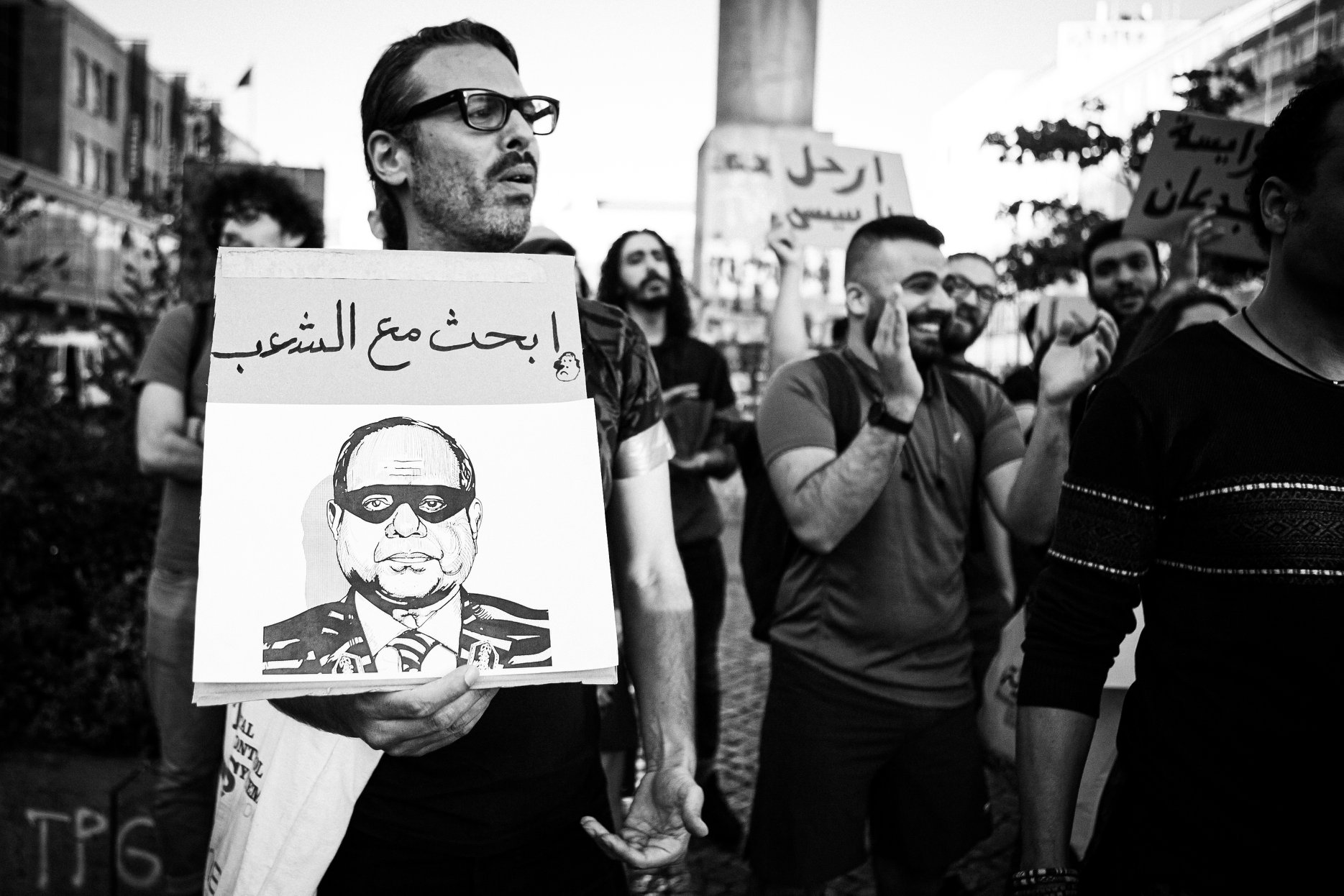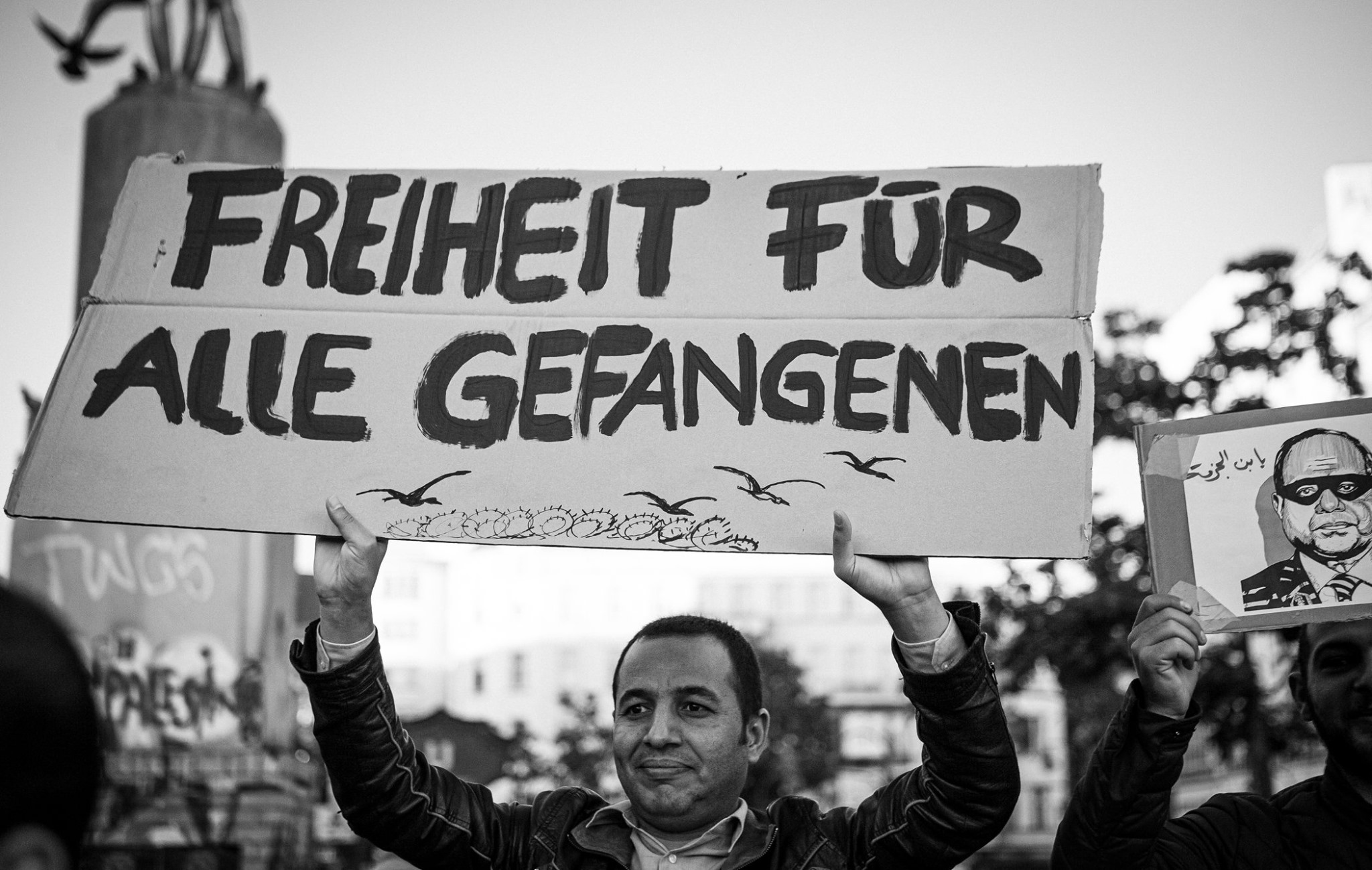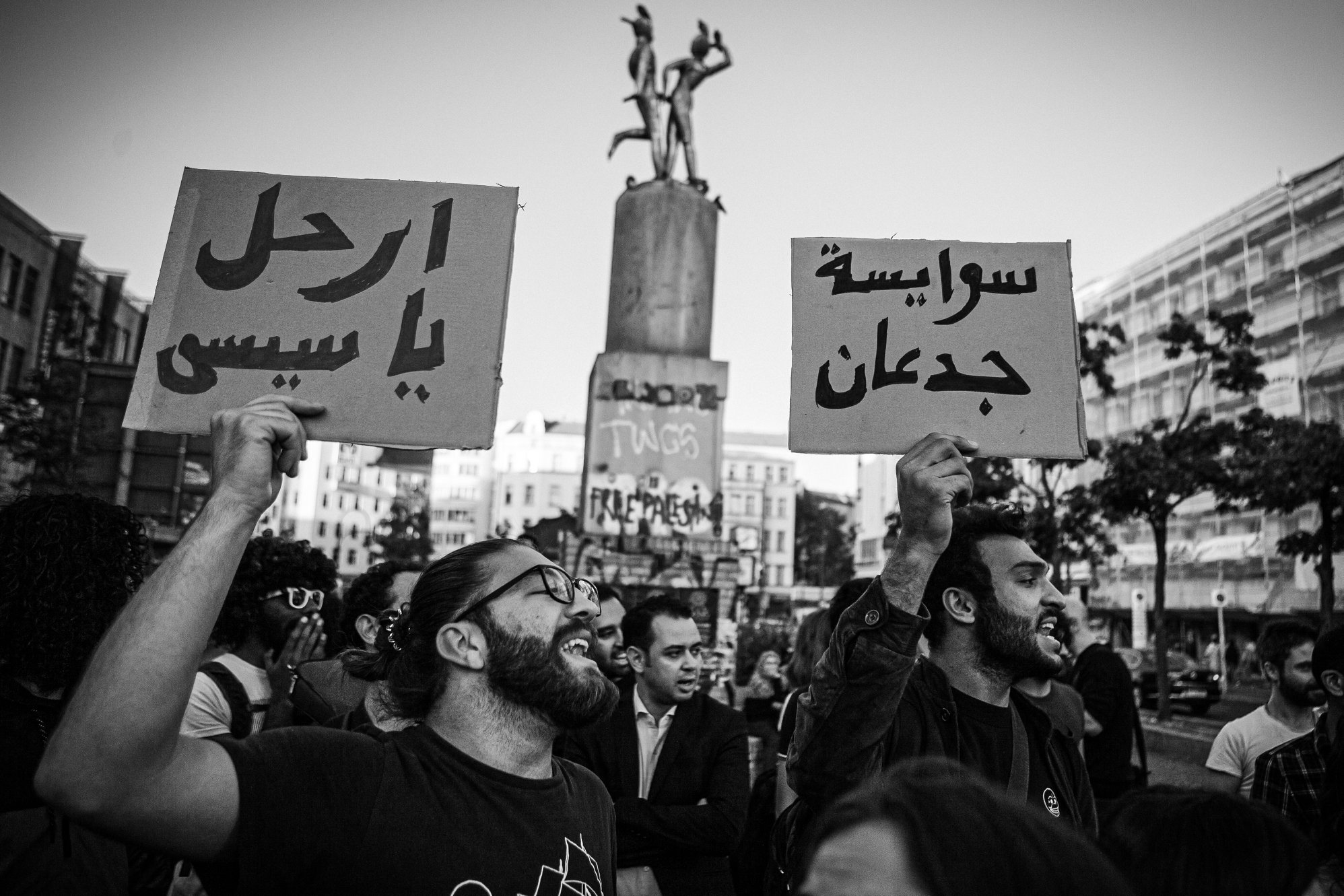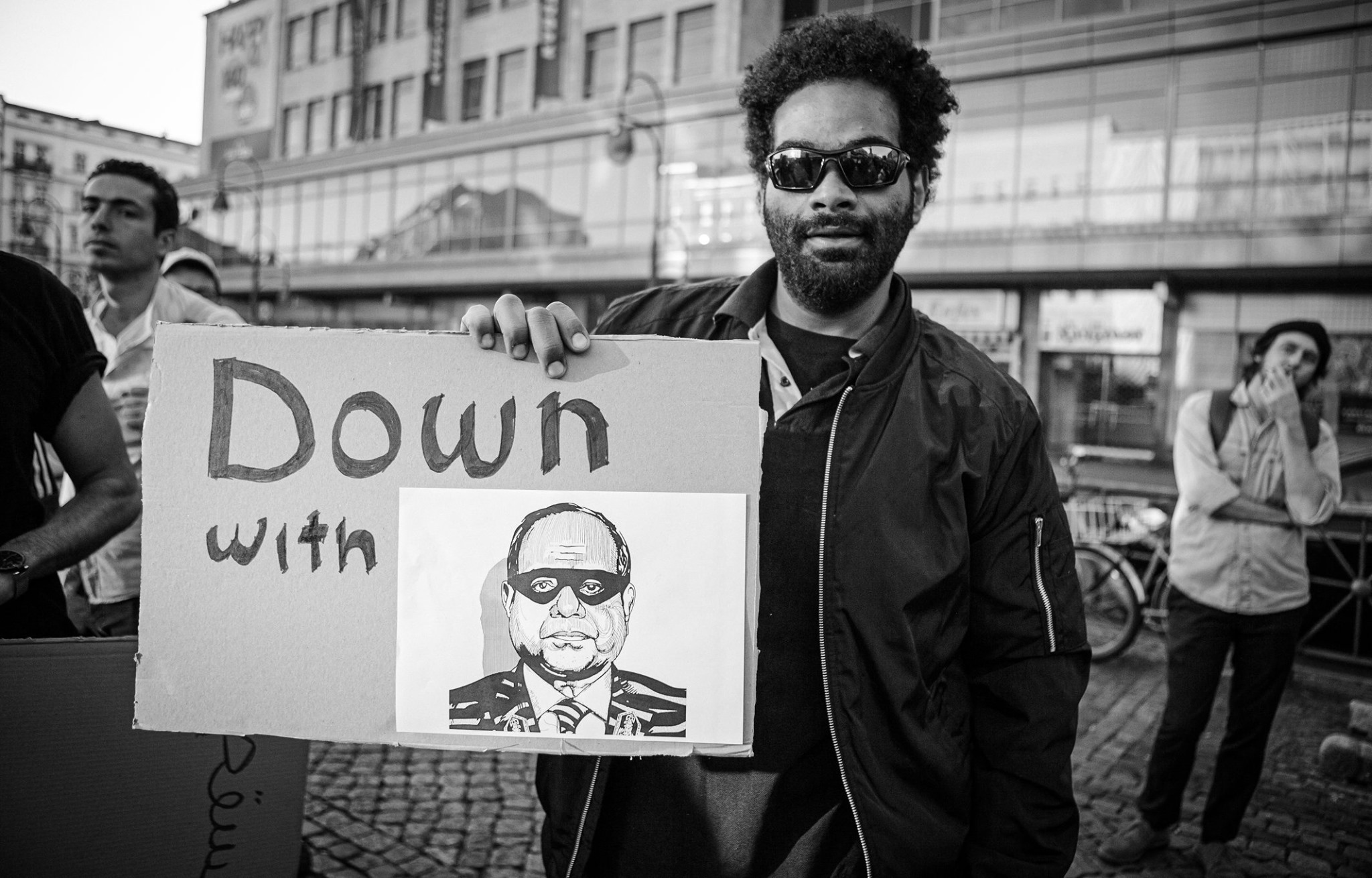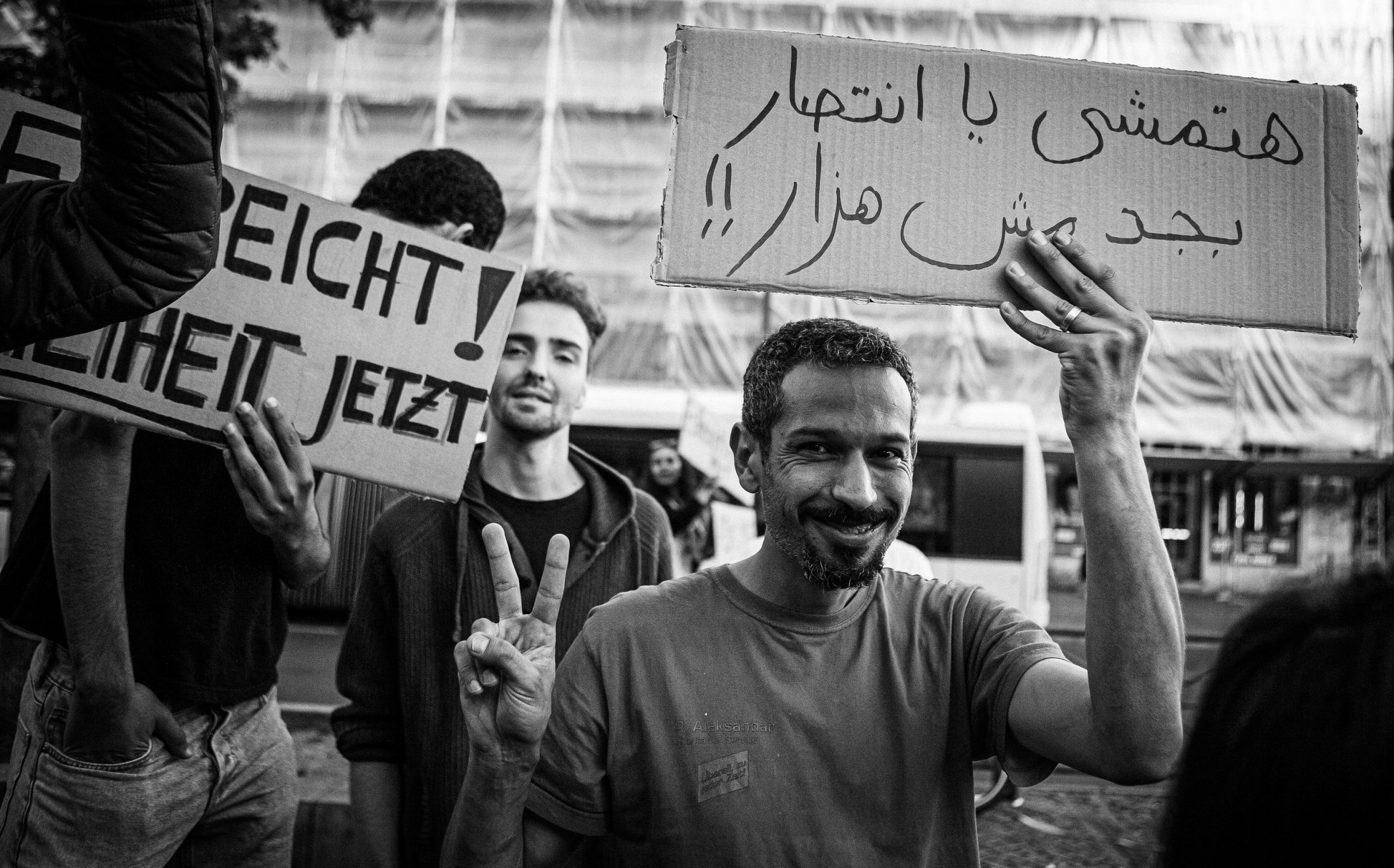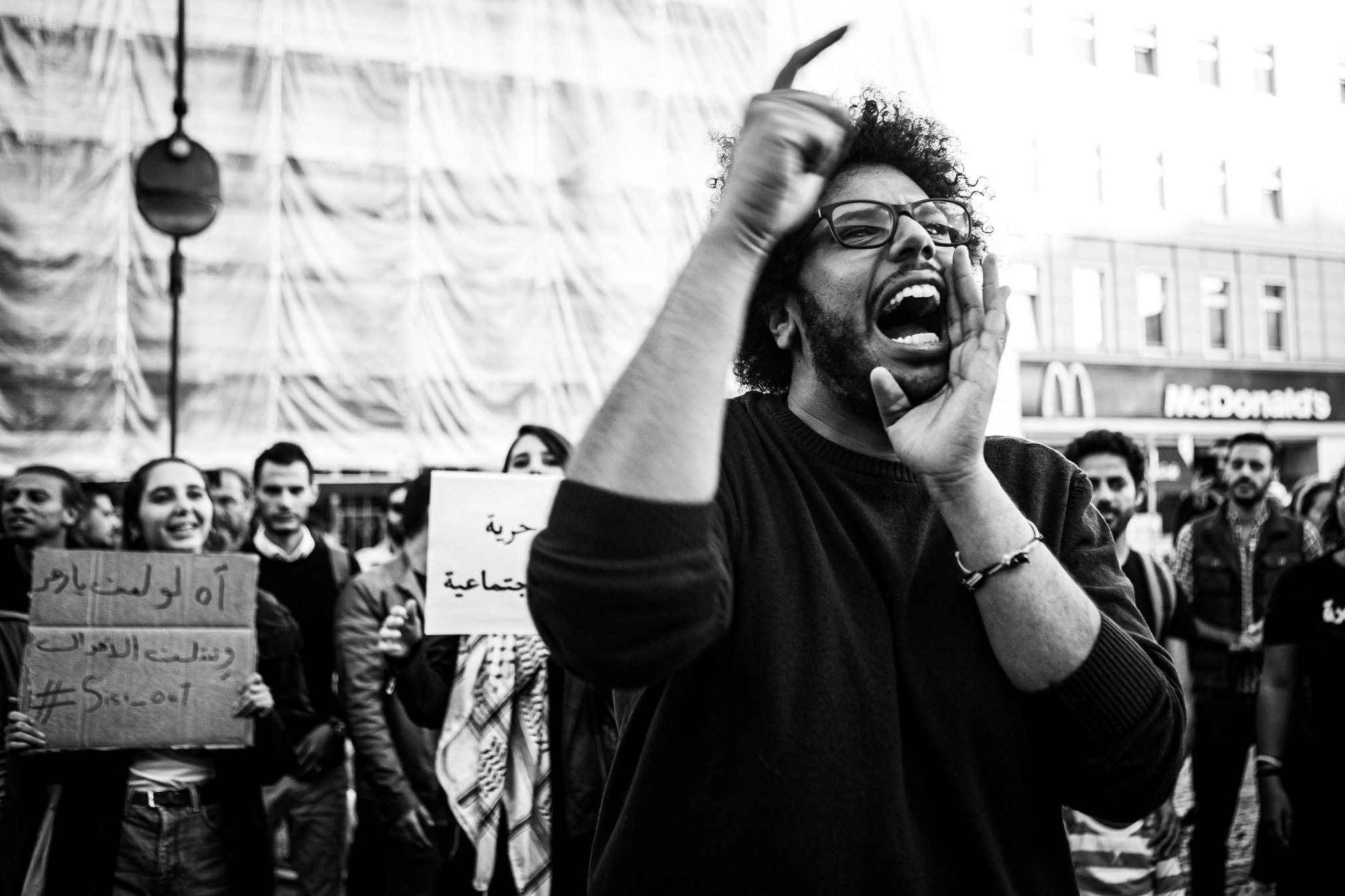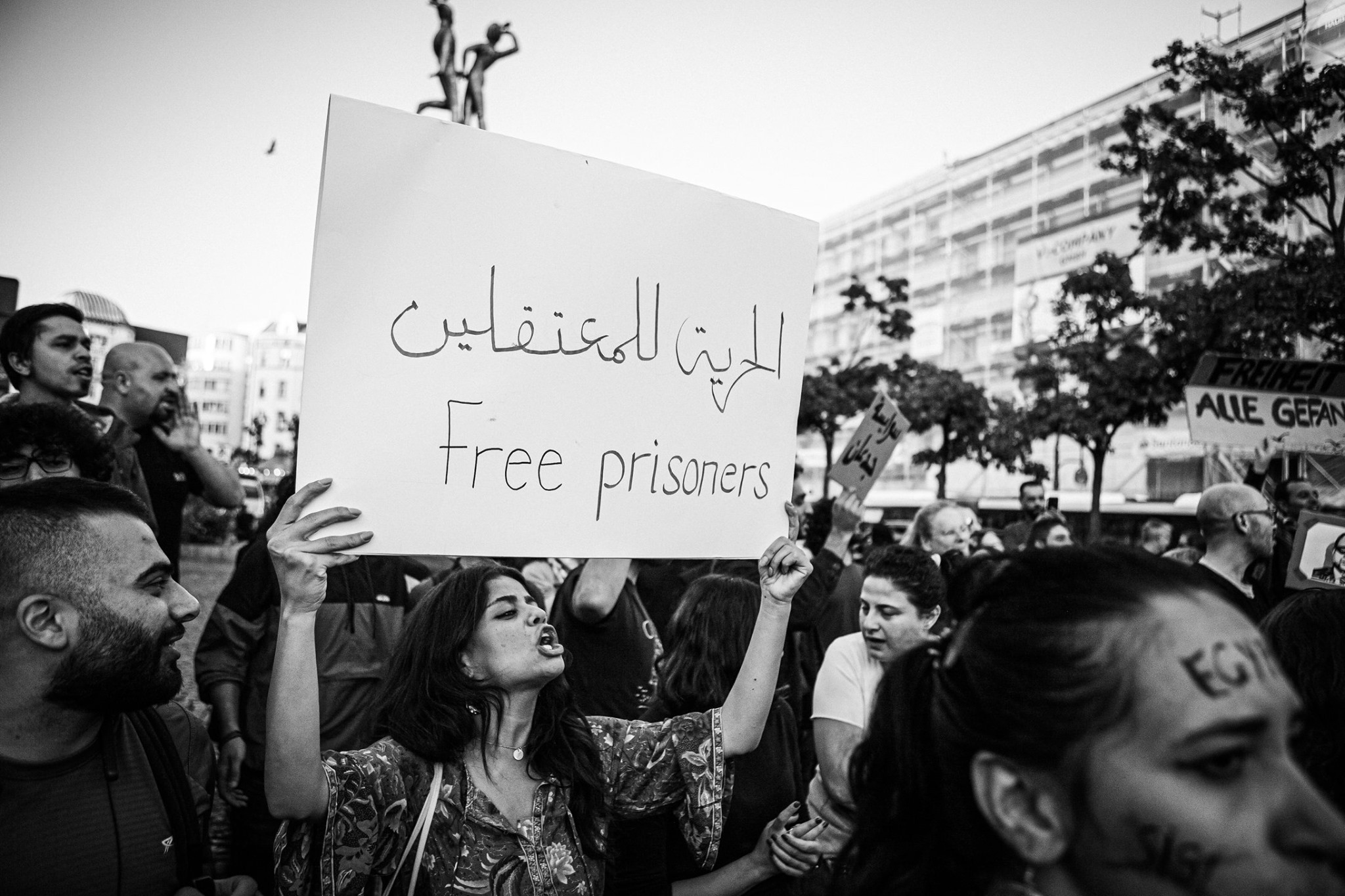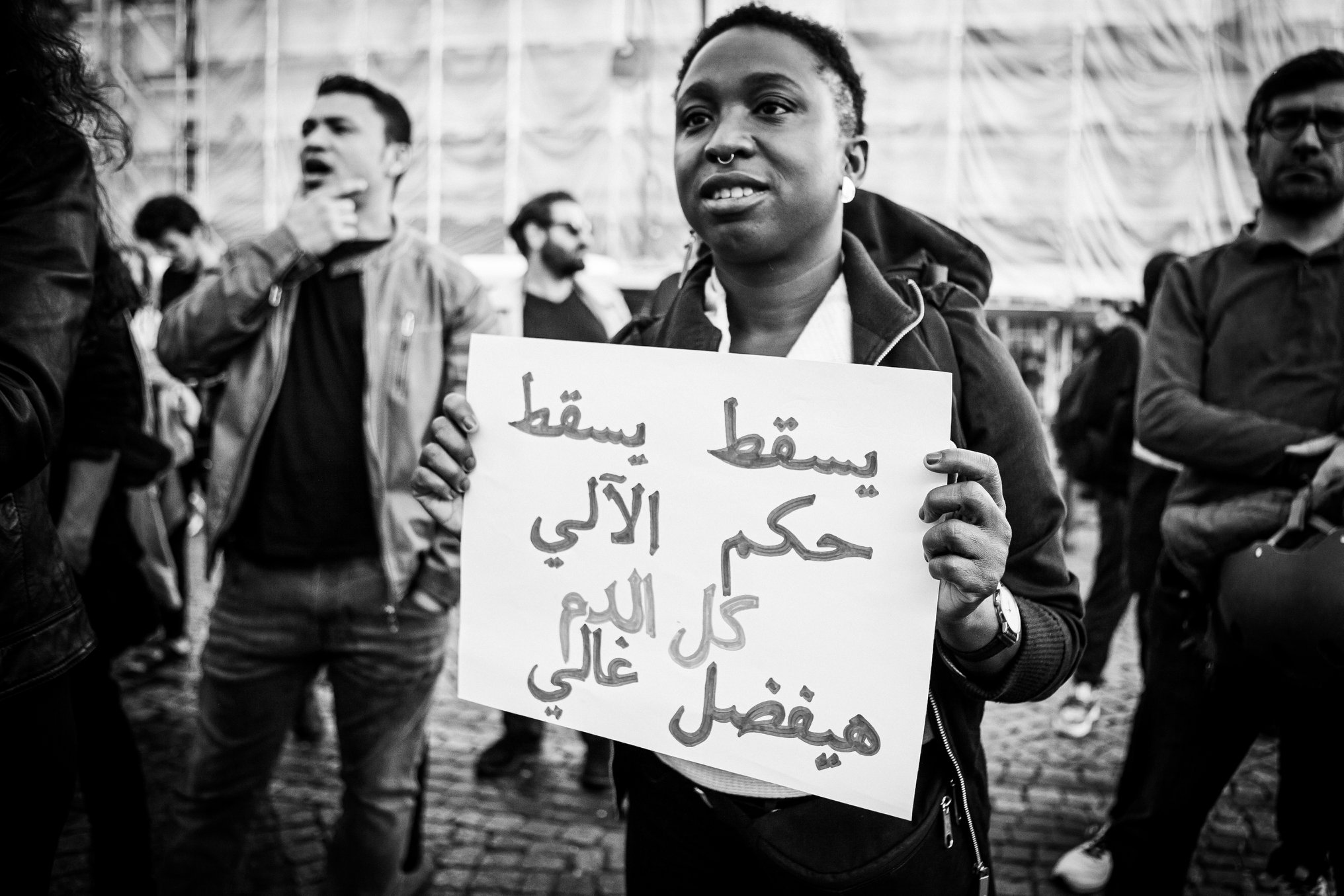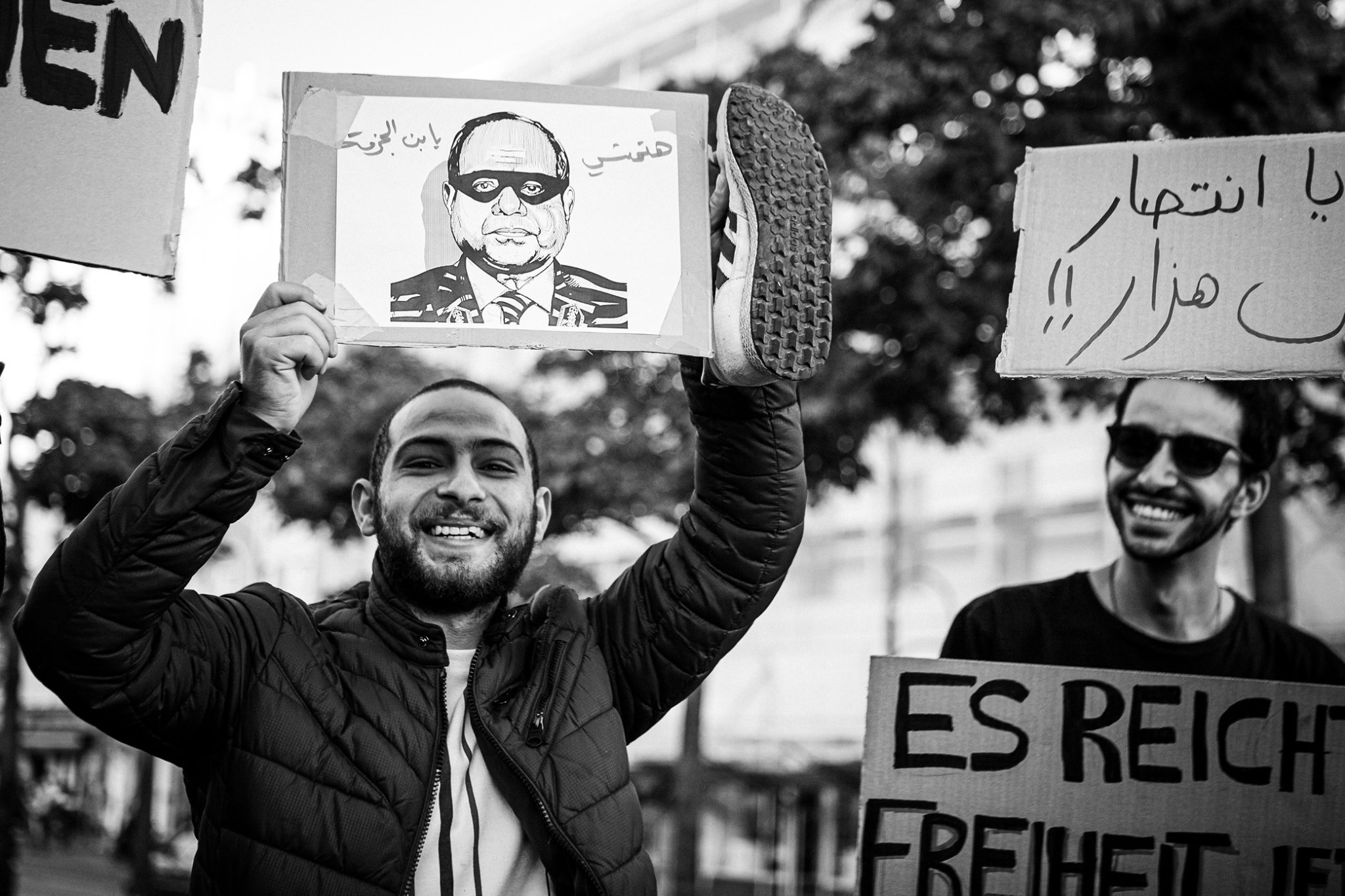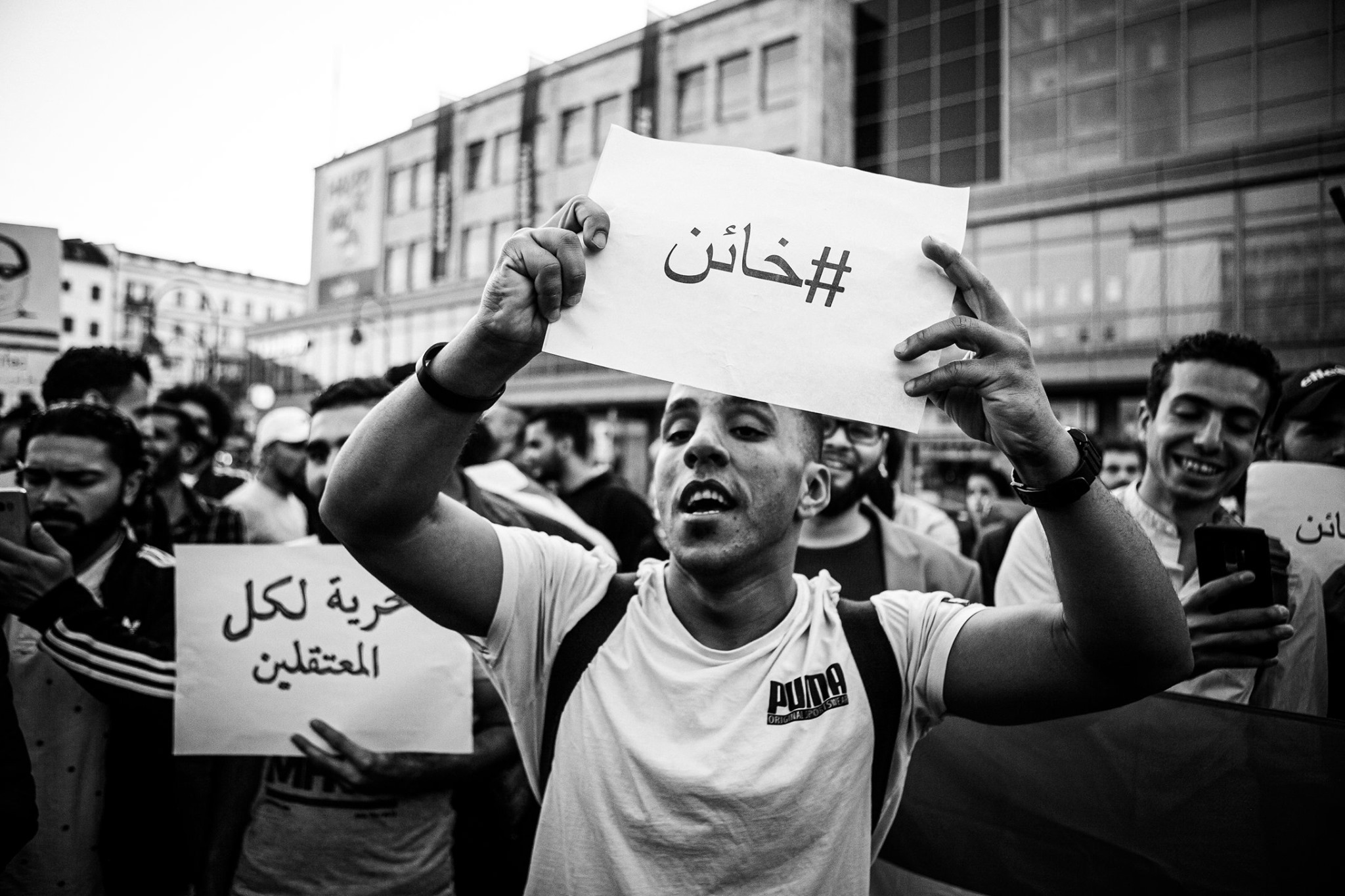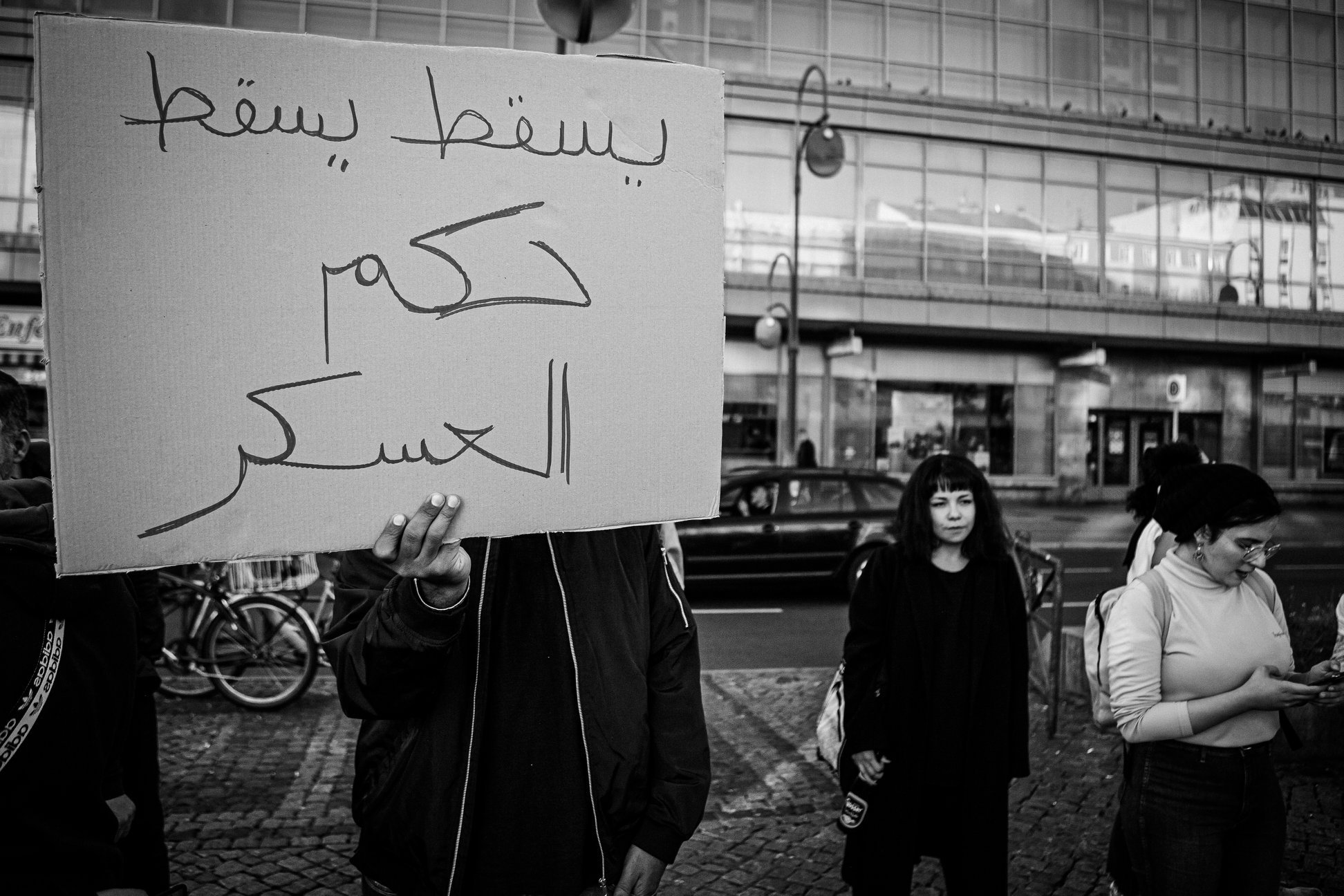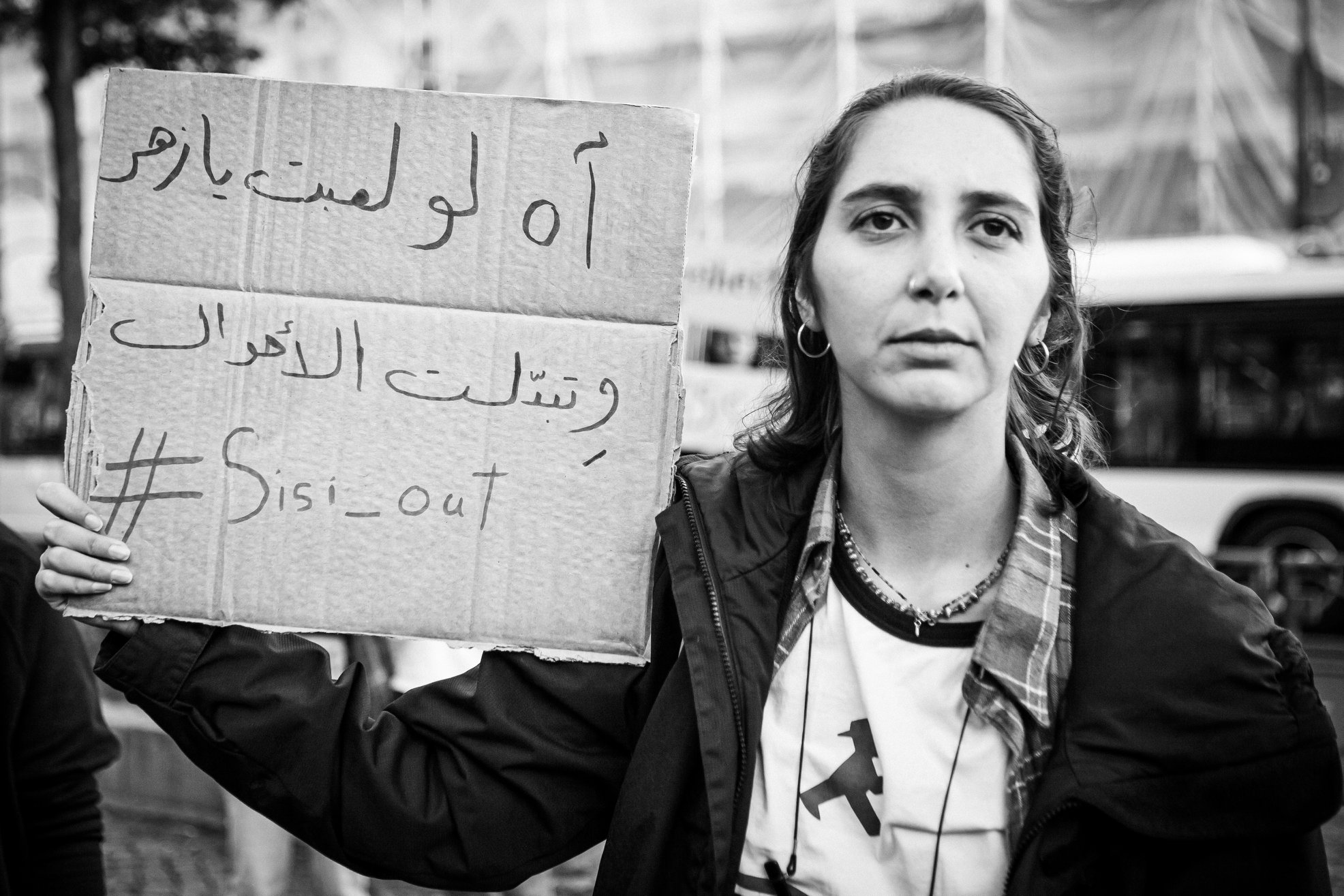photos by Hossam el-Hamalawy




photos by Hossam el-Hamalawy
The Left Berlin
20/10/2019
photos by Hossam el-Hamalawy




Recently a debate opened up in a pro-Syriza paper [EfSyn, The Journal of the Editors] and initiated by Journalist Tasos Pappas. It is a debate about the nature of the party that the left needs. In the aftermath of the Syriza capitulation and as the New Democracy right party is again in power. This is a response from the comrades of SEK.
Giorgos Pittas
17/10/2019
“What kind of party do we need? A protest party? A party of the left in government? Or a “freezer” party where the expectation of the revolution is stored away? This third model has been tried, some still are insisting this is the right type, but history has so far not justified that choice. Wherever it was implemented, it gave birth to bureaucratic monsters and state oligarchies that defamed the idea of socialism.
Is it possible to have a protest party and a governing party at the same time? That is, a party that manages the system while denouncing it? It exists only in the manuals. It has not existed anywhere in the world …
The point is that until the left finds the alternative, capitalism will continue to destroy the planet and produce savage inequalities.”
These are some of the questions posed by Tasos Pappas in the Journal of the Editors (24-25/8) in his article “I pose the Questions, Do You Have the Answers?” by intervening in the discussion that has been opened inside Syriza.
The question of what kind of party is needed is a reasonable question, and naturally, this is not the first time it arises in either the history of the left or history in general. The key question for any party that determines its political and organizational function is that of strategy, knowing what the goal is and how to reach it. This is and has been the case for all the parties as regards to the working class.
Just like at the beginning of the last century, today we live in a historic period of prolonged economic recession, continued poverty, renewed international competition, the reappearance of the fascist threat and the immediate danger of the irreversible effects of climate change. The dilemma we face in the question of what party we need is this: is it worthwhile and possible to correct capitalism or should we overthrow it before it completely destroys us?
This is not a theoretical question. Revolutions are not kept in a freezer. They are processes that arise objectively through economic crises, wars and class polarization which this system gives rise to. We have seen examples of this throughout the past decade with the Arab Spring in the Middle East and North Africa, and this year in Sudan. At the same time, the inability of the system to find the means of ending class polarization has again put the masses in the spotlight in a number of countries around the world, creating tectonic shifts and political crises.
As long as the system cannot find a way out of its crisis, the prospect of such social struggles becoming revolutions remains open. The same applies to their subject, the working class, the “historical gravedigger” of capitalism, the class that has the power to overthrow capitalism by liberating itself and the whole of society. The working class remains alive and in the forefront of history. Anyone who has doubts about this need only look at what is happening today in Sudan or Hong Kong, or what happened in Greece in the past few years.
What caused the collapse of four governments, one after the other, smashed the PASOK (the social-democratic party) that had 44% of the vote and reduced it to 4,7%, reduced New Democracy (the right-wing party) to 18% and raised Syriza to 35% in the election results in 2015? It was the 40 general strikes, wildcat strikes and ministry occupations that we saw in previous years, these were responsible for bringing down these governments. Struggles which had seemed forgotten for decades, such as the occupation of ERT (Greek public Television) brought to the fore the tradition of workers’ control and the ability of ordinary workers to take their jobs, their lives and the whole of society into their own hands.
This is not a picture of the past, but of the future. And it is important, in the face of the new challenges facing us, that we do not repeat the same mistakes. We’ve had a valuable dual experience in recent years of the role that a reformist government can play in times of crisis.[The dual experience in government of traditional reformist PASOK and of the left Reformist Syriza].
The PASOK government that promised to meet the needs of workers by asserting that the money “existed” [to use in social spending] was that went on to sign the first memorandum agreement of harsh austerity. The promise made later by Syriza under Tsipras that “we will tear down the memoranda” inspired the whole world and culminated in the July 2015 “OXI” referendum where 62% voted NO to the agreement with the creditors. Tsipras’s promises with this 62% of the referendum were thrown in the trash within a few months of Syriza signing the third memorandum.
The State was left untouched
Tsipras, who, like every other consistent reformer, promised realistic change “in the here and now”, dashed not only the hopes of the 62% who voted OXI (NO) on the referendum. It also disarmed the working class, the very force that could have brought this struggle of the OXI to fruition, those who wanted an immediate rupture with the EU and the bosses, with the media tycoons and the entire ruling class.
Instead, Syriza proceeded to form a government with the far-right ANEL party of Kamenos. The state institutions, the army, the police, the courts were left untouched and continued to do business as usual. The left-wing government’s adjustment was not limited to the signing of the third memorandum. They agreed on all the EU racist plans to close the borders and put the refugees in camps.
They also brought Greece in the alliance with Israel and Egypt in the Greece-Israel-Egypt axis [trade and military treaty], claiming for Greek capitalism the Eastern Mediterranean and welcoming as a great “national victory” forcing the changing of the name of Macedonia to Northern Macedonia and converting the neighbouring country to the north into a Greek protectorate. They came up with the same empty promises in the pre-election campaign as New Democracy had for “investments”, turning the 62% of the OXI referendum into the 33% [the drop that cost Syriza the government in the recent parliamentary elections].
If there is one model that has repeatedly discredited the idea of socialism, one that has historically been tried and failed – and is now almost rotten – is that of reformism. And to cover up its systematic failure, the people who champion this reformist model portray the workers’ revolution as the mummification of bureaucratic monsters and state oligarchs, and by raising Stalinism to the pedestal of historical necessity. [By claiming that all revolutions end up in Stalinism or other bureaucratic repressive regimes].
It is a model that, while promising a short, direct and realistic path to socialism, actually sustains the system – and at a critical juncture it ends up doing exactly that. It ends up propping up capitalism. Rosa Luxemburg characteristically wrote in her book Reform or Revolution, twenty years before she was assassinated by the Frei Corps in Berlin with the blessings of SPD reformists. She wrote that reform and revolution are not different methods of historical evolution that can easily be selected from the bench of history as one chooses hot or cold sausages. That is why those who are in favour of reform, as opposed to the conquest of political power and social revolution, in reality, they do not opt for a quieter and slower course towards the same goal of socialism, but towards an altogether different outcome.
The same could be said of Stalin’s model of “socialism in one country”, in stark contrast to the Bolsheviks’ strategy that argued the only way to defend the revolution was for it to become international. Stalin’s was not another path to socialism with all the savagery and atrocities it committed. Rather, it replaced the task of expanding the workers’ revolution with the invasions of Russian tanks in Hungary in ’56, the Czech Republic in ’68 or Poland. ’81. In fact, it was the path to existing state capitalism.
Contrary to both social democracy and Stalinism, the liberation of the working class is the work of the working class itself, Marx argued. We need revolutionary parties today that will not replace the working class and will not betray its hopes but will help it succeed in its historic role: to overthrow this system through the crushing of the capitalist state apparatus and the collective control of the means of production.
And until that happens, what do we do? Is this ultimately the risk of ending up in a “freezer party” where the expectation of revolution is stored away?
Marx and Engels wrote in the communist manifesto that Communists are striving for immediate goals, for imposing the immediate interests of the working class. But within the current movement, they also represent and care for the future of this movement.
This is a contradiction inherent in the very concept of the revolutionary party. It supports strikes where the workers aim to sell their labor power to the bosses for more money while at the same time fighting for the abolition of wage labor. The revolutionary party uses parliament as a bullhorn and refuses to stay on the sidelines of political life while fighting for the overthrow of today’s state institutions and their replacement by a workers’ democracy.
And this contradiction does not stop there. The revolutionary party stands out from all the rest because it is an anti-party, in the sense that it aims at its own destruction. Gramsci wrote that for any party that seeks to abolish class divisions, its completion consists of ceasing to exist as their expressions will no longer exist.
How, then, can the revolutionary party play its historical role and at the same time overcome dangers, obstacles and pitfalls?
Party of the autonomy of revolutionaries
In order for the working class to be able to become a political force and to participate effectively in political competition, it cannot subordinate itself to the role the bourgeoisie ascribes to it. Instead, it has to project its own perspective: the overthrow of the bourgeois state. Therefore, the revolutionary party needs to be in confrontation with the reformist political forces inside the working class. The independence of the revolutionaries vis a vis the reformists is required.
This kind of approach does not have as its aim the confrontation of the party with the spontaneity of the workers [As claimed by some proponents and supporters of Leninism.] It aims for the erosion of ruling class ideology and reformist practices within the workers’ movement, while also being in conflict with the parliamentary corruption and bureaucratic degeneration that systematically besiege the workers movement. But where does the revolutionary party derive its power to resist the erosion of militancy and the voices of reformism within the ranks of the working class?
The notion that class consciousness exists only within the party as opposed to the “unconscious masses” around it is a legacy of Stalinism, not of Leninism. The theory of the fortress-organization that contains the proletarian consciousness within it and dishes it out to the “backward masses” is a theoretic apology for the bureaucracy of the Stalinist parties, a theory which seeks to justify the unchecked leadership mechanisms of these parties.
Against all the distortions of Stalinism, what allows Lenin to raise the political independence of revolutionaries is not based on petty-bourgeois fantasies of the enlightening party of “divine revelation”. But of a party of the most advanced sections of the working class that will be fighting the influence of ruling class ideas inside the workers movement.
Party of the vanguard of the working class
The working class does not move like a uniform mass. Workers consciousness is constantly uneven, constantly pulled between advance and retreat under the influence of contradictory pressures. On the one hand, the position of the working class in production, the experience of exploitation and the sense of its collective power lead workers into spontaneous conflict with capitalism. Communism is not a utopia, a “vision”, an abstract model. It is a living tendency inherent in the struggles of the workers themselves and seeks its vindication in their victories.
At the same time however, the position of the working class as a class dominated politically and ideologically by the bourgeoisie within capitalism, pushes it in the opposite direction. Even in its movement forward, the working class feels the dead weight of the ideas of the dominant ideology holding it back. This constant tug of war means that there are many different levels of consciousness within the working class. The working class is stratified into advanced and backward sections, unionized and non-unionized workers, militant workers who hold reactionary ideas, ideologically advanced but passive workers, organized revolutionaries and inactive followers.
The revolutionary party does not aim to win in its ranks, initially, the entire working class. It is not acting as a regular party. Aiming at the more advanced parts of the working class, it aims to win the most militant workers who are the leadership of struggles as it emerges in each period, while at the same time gaining that social power that allows it to be part of the class without losing its revolutionary identity. Through this process, it fights on better terms to raise the confidence and energies of the entire class to the height of its most advanced sections.
But the creation of the revolutionary party of the working class is not the merging of some revolutionaries who self-proclaim to be carriers of proletarian theory with some workers who call themselves the vanguard. We need to see the building of such a party as a dynamic and dialectical process where the revolutionary party is constituted through revolutionary theory and practice based on a continuous dialogue with the class as a whole.
Party of open debate and collective action
Revolutionary theory itself, the principles and positions of a revolutionary party, are shaped by the movement of the working class, with the “educators” simultaneously becoming educated. Marx was taught by the Paris Commune. In the same way, Lenin was taught by the Russian workers soviets. More generally, the character of the revolutionary party is based on its relation to the daily practice of the working class. It is the working class that teaches the party how to play a pioneering role in the conflict with capitalism.
The specifics of a strategic orientation in a program, the formulation of a criterion for the correct assessment of class correlations in a specific context, the practice of the revolutionaries to react in a homogeneous way and to direct all the energies of the masses in the conflict with the bourgeoisie, are neither glorious past, nor handed down by some enlightened leaders. They are drawn up through an ongoing dialogue with the class, which inspires, judges, rejects, re-elects and refines the revolutionaries’ initiatives.
To be able to have this two-way relationship with the class, the revolutionary party needs democratic centralism within itself, that is, centralization in action and democracy in debate. Democratic centralism has nothing to do with the bureaucratic centralization of the Stalinist parties that legitimize the omnipotence of leadership, nor intended for organizational functions. It is an approach in the party and class relationship.
It is this relationship that imposes organizational functions that follow the discussion-decision-action-discussion scheme, as a collective process of shaping militants over real battles that are fought within the realm of class struggle where the whole class operates. This is of course, a picture in stark contrast to the passive position reserved for the workers by the reformist parties, with the exception of pre-election periods.
However, in order for this to not be wishful thinking such a scheme presupposes, on the one hand, the active involvement of all members in the movement and the practical organization of the struggles, and on the other, systematic internal debate, a debate equipped with the weapons of revolutionary theory and collective experience. Through this process, the revolutionary party aims not to enforce, but to win its leading role within the class by winning over the majority of the working class to its program.
The revolutionary party is not the embryo or model of a new society. This can be found in the institutions created by the working class with its revolution, namely the workers’ councils. As Tony Cliff used to say, Michelangelo, in order to craft the beautiful statue of David, did not use a beautiful hammer nor a beautiful chisel. In this analogy, the revolutionary party corresponds neither to Michelangelo nor to the statue of David, but to the chisel.
The revolutionary party is the most useful tool in the hands of the working class to change the world but the working class needs to do so itself. As Gramsci writes in The Lyons Theses: “The principle that the party is leading the working class should not be interpreted mechanistically… the ability to lead the class is linked not to the fact that the party is proclaiming itself a revolutionary instrument of the class but to the fact that it really succeeds as part of the working class to connect with all sections of the class …
Only as a result of his action within the masses will the party be able to be recognized as their own. And only when that condition has been met can the party consider that it has the capacity to pull the working class behind it.”
Join us in organizing towards this goal.
This article was originally printed in Greek in Workers Solidarity/newspaper of the Greek Socialist Workers Party (ΣΕΚ). Reproduced with permission
Photos by Hossam El-Hamalawy. Reproduced with permission
The Left Berlin
14/10/2019
Photos by Hossam El-Hamalawy. Reproduced with permission





This is the second installment in a two-part article monitoring the actions of Rio de Janeiro Governor Wilson Witzel since taking office, focusing on public security, governance, and social and economic development. Witzel was elected last October on a public security-driven campaign, promising to “protect police from potential conviction,” raising the question of who would benefit from said security. […]
Luisa Fenizola
30/09/2019
This is the second installment in a two-part article monitoring the actions of Rio de Janeiro Governor Wilson Witzel since taking office, focusing on public security, governance, and social and economic development. Witzel was elected last October on a public security-driven campaign, promising to “protect police from potential conviction,” raising the question of who would benefit from said security. In this article, we analyze his achievements from inauguration to present day, as well as discrepancies between his rhetoric and practice.
After taking office in January, Wilson Witzel provided his aides with a Plan of Directives and Priority Initiatives of the Rio State Government, outlining 104 goals to be reached within the first 100 days of government, and another 99 goals for the first six months. At the administration’s 100-day mark, the government released a separate document, titled “The Beginning of a New Future: 100 Days, Results from the Government,” as a follow-up. This document does not mention the goals set for 180 days (six months), nor has any new document assessing this period’s goals been published, making it impossible to track their progress.
This installment analyzes the main goals and actions of the Rio state government in its first six months, focusing on the “Economic Development and Regionalization” and “Human and Social Development” pillars as outlined in the government’s 100-day document.
Among the government’s declared achievements is the establishment of new parameters for Rio’s public water utility CEDAE‘s social rate, aiming to expand preferential rate coverage from 100,000 to 300,000 low-income families. The goal of creating a new rate-model by restructuring minimum fees is reportedly 80% complete. Separately, Witzel has expressed his intention to privatize CEDAE as a means of achieving fiscal recovery for the state. Specialists and social movements alike have condemned the prospect of privatization, affirming that the water supply must be kept public and universal, rather than managed for profit by the private sector. They maintain that privatization would increase inequality, as a private company would possibly seek increased fees or cease to operate in less profitable areas, such as favelas.
Another goal in this section, one that would allow a portion of the profits from the state lottery system (LOTERJ) to be applied to public security expenses (the current law states that they may be applied to school and hospital assistance, areas of public interest, educational, sport and cultural services), has disappeared from the 100-day document. Meanwhile, another goal, that of “resuming the cable car operations,” without specifying whether this refers to the cable car system in Morro da Providência favela or Complexo do Alemão‘s favelas, was not achieved in either location. The 100-day document states only that there exists a working group dedicated to restoring activity in Alemão.
The original goal of “creating the State Land Regularization Plan (PERF), allowing greater access to concession of use titles for housing in communities” became simply “create measures to draft the State Land Regularization Plan (PERF)” and was marked accomplished, though creating measures to draft the plan is very different from actually creating a plan. At the event marking 180 days in office, the governor announced that land titles would be granted to the residents of Morro do Preventório, in Rio’s sister city of Niterói across the Guanabara Bay. It was not clear, however, if this would constitute a resumption of work already being undertaken by the Land and Cartography Institute of the State of Rio de Janeiro (ITERJ), the body responsible for this regularization, or if the process would belong to a new program.
Among the original goals for the government’s 180-day mark was that to “identify, catalog and monitor families in hazardous areas and where to relocate them,” an idea that interacts with the security pillar goals, but does not appear in the 100-day government report, leaving it unclear whether or not this is taking place at all. Another goal, one that aims to “consolidate rural and urban settlements through the fostering of infrastructure works, delivery of equipment and supplies and projects to create jobs and income,” is ambitious, given that it does not define specific territories or a specific number of settlements that must be reached.
This section also mentions goals related to a program that the government claims to have initiated in the 100-day report, called Rumo ao Rio (Bound for Rio), and a kit to help attract major events. These include candidacy for the 2020 Global Summit on Urban Tourism, which relates to the goal of “strengthening security for tourists at attractions and tourist areas in the city of Rio”—favoring once again the security of tourists and residents of touristic areas over the rest of the city’s inhabitants—and the implementation of both the MotoGP World Championship and Formula 1 at the city’s new racetrack.
The new racetrack in turn may remind readers of the old racetrack, demolished in 2012 for the construction of the Olympic Park, causing the violent eviction of almost all of the families of the Vila Autódromo community. Just as in the case of the Olympic Park, only one consortium participated in the tender for new racetrack. The tender has previously been blocked by the Public Prosecutor’s Office due to the absence of environmental impact studies surrounding the project’s effects on the neighborhood of Deodoro, which is home to a large remaining patch of urban Atlantic rainforest.
The insistence of successive administrations on attracting large events for the city flies in the face of evidence that these events carry overwhelmingly negative legacies, as they have provoked everything from evictions and gentrification, affecting the right to housing for thousands of families, to excessive state spending, contract corruption, and underused constructions.
For the government’s 180-day goals, the goal of “developing a policy of attending to families enduring social hardship” and “developing activities for the protection and promotion of food security” shows no mention of progress. What the government has done is re-register 1,340 families in the social rent support program, which corresponds to 20% of beneficiaries, and conduct attendance and monitoring of 1,571 people and family members of victims of rights violations. The document does not specify how this attendance is undertaken, what type of rights violations are included, or how this relates to the total number of victims.
In the 100-day results document, Witzel claims to have implemented a program called Citizenship Action by the Leão XIII Foundation. There is no online presence for this program, either on the government’s official website or in the government daily registry. If created, the program would confusedly hold the same name as the non-profit organization created by beloved activist-sociologist Herbert de Sousa, known as Betinho, in 1993.
The document includes other achievements not found in the Directives Plan, such as the “implantation” of the Novo Olhar (New Vision) program, giving free eye exams and glasses to the population. The program has been in existence since at least 2017 (it would be more accurate to stipulate the continuation or maintenance of the program). The document also mentions the reorganizing of shelters, without specifying what this means. Recently, the governor defended obligatory internment in shelters for homeless people with issues of mental illness and drug addiction.
The 100-day document also includes goals related to mega-events, including a bid for the 2019 World School Games (which is 90% complete) and attracting events such as UFC Rio de Janeiro, the Rio Open, the World Surf League, Rally dos Sertões 2020, Red Bull sports events, and the South American Mixed Martial Arts Championship. It is not clear how these events will contribute to the social and human development of the state’s residents. The governor also promised reforms of the Rocinha favela’s sport center, though this was not part of the Directives plan.
This article first appeared on the RioOnWatch Website. Reproduced with permission from the author.
photos by Hossam El-Hamalawy. Reproduced with permission
photos by Hossam El-Hamalawy. Reproduced with permission


